- Los Angeles, CA
- Subscribe to our newsletter
Feminist Approaches to Theorizing Genocidal Violence, Wars and Occupations
- Workshop Series
- October 19, 2021
In this series, we discuss the genocidal violence of everyday life. In the spirit of collaboration, feminist scholars will gather to present virtually on works in progress on the theme of genocidal violence.
The continuous sexualized targeting and killing of Indigenous women, the disposability of populations through wars and occupations, the genocidal fury aimed at racialized populations everywhere, institutionalized anti-Blackness resulting in police killings, a prison industrial complex and an unrelenting assault on Black and Latino communities: Feminist scholars know that a historicized analysis of race, class, gender and sexuality that is deeply attentive to imperialism, colonialism, the afterlives of the transatlantic slave trade and continuing racial capitalism, remains crucial for understanding the necropolitics we see everywhere. This workshop considers Genocidal violence across diverse contexts from North America to Palestine, India, the Middle East, Turkey, Armenia and elsewhere.
- Those of us who write on violence wrestle with a number of issues including:
- How to think about the politics of genocidal violence and the interconnections between its different registers
- How to consider the transnational links between genocidal states
- How to write about racial violence without spectacularizing it and trading in pain and suffering
- How to minimize harm to the families and communities of those we write about
- How to understand the specific context of racial violence, its geopolitical coordinates and its relationship to history
- How to understand the operation of interlocking systems of oppression in each case
- How to understand resistance
We hope to develop our thoughts about genocidal violence and its interconnected, global dimensions and deepen our scholarly and personal ties as feminist scholars, sustaining each other in our writing, teaching and politics. We will share resources and each other’s minds as we discuss the specificities of each research context.
Opening Event
Traffic in Asian Women: Categorical Violence and Innumerable Loss
- All
- 2021
- 2022
Presenters

Dr. Sherene H. Razack
Topic: “Gray Zones in Law: Sexual Terror and Genocide“
Distinguished Professor and the Penny Kanner Endowed Chair Emerita in Gender Studies Her most recent book is: Nothing Has to Make Sense: Upholding White Supremacy Through Anti-Muslim Racism (2022).
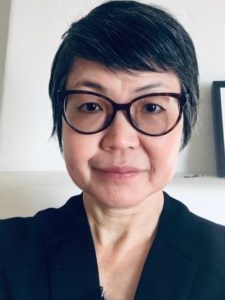
Dr. Laura Hyun Yi Kang
Professor and former Chair of the Department Gender & Sexuality Studies at the University of California, Irvine. She is the author of Traffic in Asian Women (Duke University Press 2020) and Compositional Subjects: Enfiguring Asian/American Women (Duke University Press 2002).

Dr. Shaira Vadasaria
Topic: “The (Racial) Question of Palestine: Zionism, Anti-Palestinian Racism and the Politics of Translation “
Lecturer in Race and Decolonial Studies in the Sociology Department within the School of Social and Political Science at The University of Edinburgh.

Dr. Nadera Shalhoub-Kevorkian
Topic: “Swarming Racial Violence, Affective Politics and the Israeli Occupation of Palestine“
Lawrence D. Biele Chair in Law at the Faculty of Law-Institute of Criminology and the School of Social Work and Public Welfare at the Hebrew University of Jerusalem and the Global Chair in Law- Queen Mary University of London.
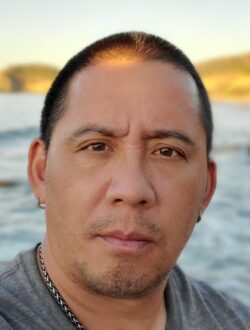
Dr. Dylan Rodríguez
Topic: “Reformism as Genocide Management: Abolition and (Reformist) Counterinsurgency in the Historical Present Tense”
An abolitionist teacher, scholar, and collaborator. He was named an inaugural Freedom Scholar in 2020 and recently served as President of the American Studies Association (2020-2021). He is a Professor at the University of California, Riverside since 2001 and recently became the Co-Director of the Center for Ideas and Society.
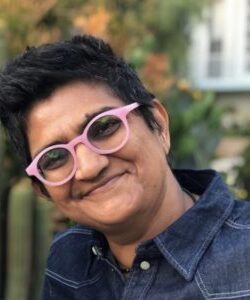
Dr. Anjali Arondekar
Topic: “‘These Are Our Sincere Dreams:’ Sexuality, Caste, Dissent”
Associate Professor of Feminist Studies, and founding Co-Director, Center for South Asian Studies, University of California, Santa Cruz. Her research engages the poetics and politics of sexuality, caste, and historiography, with a focus on Indian Ocean Studies and South Asia.
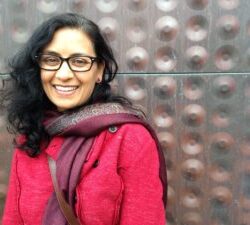
Dr. Rupaleem Bhuyan
Topic: “De facto statelessness through Administrative Violence: The coloniality of bordering through the National Registry of Citizens in Assam, India”
Associate Professor in Social Work of Assamese descent at the University of Toronto. Dr. Bhuyan’s research examines how immigration policies contribute to gendered and racial forms of structural violence, with a focus on collective action with and by migrants who seek dignity and human rights.
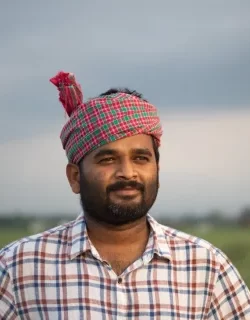
Abdul Kalam Azad
Topic: “De facto statelessness through Administrative Violence: The coloniality of bordering through the National Registry of Citizens in Assam, India”
An independent researcher-activist based out of Assam, India and a PhD candidate at Athena Institute, VU Amsterdam. Currently, Mr. Azam is working on multiple projects exploring the citizenship crisis in Assam where nearly two million people are excluded from National Register of Citizens.
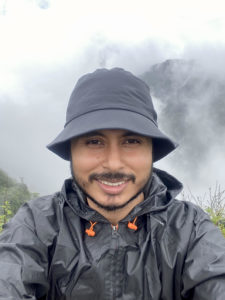
Anupol Bordoloi
Topic: “De facto statelessness through Administrative Violence: The coloniality of bordering through the National Registry of Citizens in Assam, India”
An independent researcher living in Guwahati, Assam with an MSW from Flinders University, Adelaide, Australia. Mr. Bordoloi currently works with the United Nations Development Program (UNDP) in Guwahati, Assam and is involved in the formulation and implementation of development programs relating to poverty alleviation, healthcare, governance and climate change.
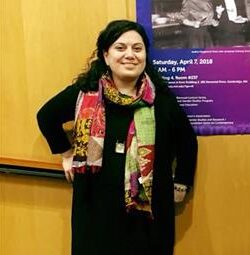
Dr. Melissa Bilal
Topic: “‘Stories of dreadful iniquities and unutterable suffering:’ Theorizing Arshaguhi Teotig’s Indigenous Feminist Voice in relation to Mass Violence against Ottoman Armenians”
Associate Director of the Armenian Music Program and Lecturer in the Department of Ethnomusicology at UCLA.

Dr. Silvia Posocco
Topic: “Sepur Zarco, Guatemala: “Bodying Forth” and forensic aesthetics of witnessing in the courtroom and beyond”
A reader in social anthropology in the Department of Psychosocial Studies at Birkbeck, University of London. Her interdisciplinary research interests are in gender and sexuality studies and violence, conflict and genocide studies. She has studied ethnographically insurgent movements in Guatemala, the archives of transnational adoption across sites and temporalities, and most recently, forensic archives, bioinformation and cultures of evidence.

Dr. Jen Rinaldi
Topic: “The Slow and Sudden Carceral Violences of the Canadian Colonial Project”
Associate Professor in Legal Studies at Ontario Tech University. Her research takes up how non-normative bodies are read, marked, and produced in and through socio-legal discourse.
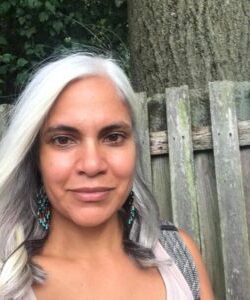
Dr. Jaskiran Dhillon
Topic: “Protect the Nation, Defeat the Threats”: Colonial Violence and the Securitization of the Canadian Northern Border in the Wake of Climate Catastrophe“
Associate Professor in Global Studies at The New School. Her scholarship, organizing, and teaching aims to work in the service of political movements advancing decolonization, justice, and freedom across the world.
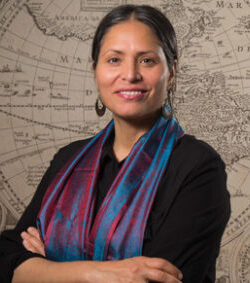
Dr. Ather Zia
Topic: “Neocolonial De-Development in the Indian Occupied Kashmir”
Associate Professor in Anthropology and Gender Studies at the University of Northern Colorado Greeley. She is the founder-editor of Kashmir Lit and is the co-founder of Critical Kashmir Studies Collective, an interdisciplinary network of scholars working on the Kashmir region.
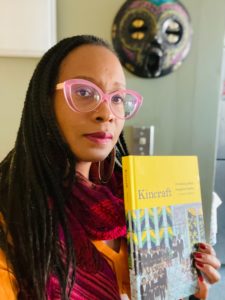
Dr. Todne Thomas
Topic: “Feeling Genocide: Matrifocality and Black Church Arson”
Assistant Professor of African American Religious Studies at Harvard Divinity School, Harvard University. She has co-edited New Directions in Spiritual Kinship: Sacred Ties across the Abrahamic Religions (2017) with Asiya Malik and Rose Wellman. Her latest book, Kincraft: The Making of Black Evangelical Sociality (2021), explores the internal dynamics of community life among black evangelicals, who are often overshadowed by white evangelicals and the common equation of the “Black Church” with an Afro-Protestant mainline. Her current research examines the familial and spiritual experiences of black evangelicals and the neoliberal displacement of black sacred space.
Moderators
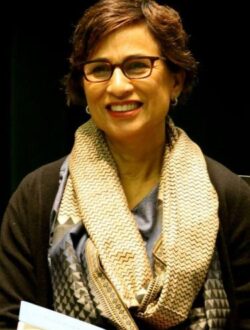
Dr. Inderpal Grawal
Professor Emeritus of Women’s, Gender, and Sexuality Studies at Yale University. She is one of the founders of the field of transnational feminist studies, and known for her work on transnational feminism, cultural theory, feminist theory, and her extensive research on cultures of colonialism and empire.

Dr. Lana Tatour
Lecturer in Development at the School of Social Sciences, UNSW Sydney.
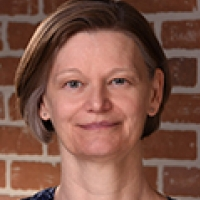
Dr. Leslie Theilen-Wilson
Assistant Professor in the Faculty of Arts and Science at the Gender Equality and Social Justice at Nipissing University.
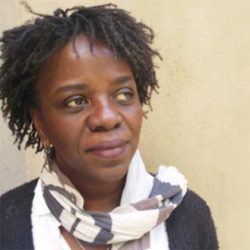
Dr. Denise Ferreira da Silva
An academic and practicing artist, Dr. Denise Ferreira da Silva’s work addresses the ethico-political challenges of the global present. She is currently Director and Professor at the Social Justice Institute-GRSJ at the University of British Columbia.

Dr. Zeynep Korkman
Assistant Professor of Gender Studies at UCLA. Her teaching and research interests include transnational feminisms; cultural politics; gender, labor, and affect; and religion, secularism, and the public sphere, with a regional focus on Turkey and the larger Middle East. Her primary scholarly agenda is to explore how gender and sexual minorities survive, resist, and even thrive within neoconservative and neoliberal encroachment upon their life worlds.

Dr. Shannon Speed
A tribal citizen of the Chickasaw Nation of Oklahoma. She is Director of the American Indian Studies Center and a Professor of Gender Studies and Anthropology at UCLA. Dr. Speed has worked for the last two decades in Mexico and in the United States on issues of indigenous autonomy, sovereignty, gender, neoliberalism, violence, migration, social justice, and activist research. Her most recent book, Incarcerated Stories: Indigenous Women Migrants and Violence in the Settler Capitalist State, won the Best Subsequent Book Award of the Native American and Indigenous Studies Association in 2019 and a CHOICE Outstanding Academic Title award in 2020.
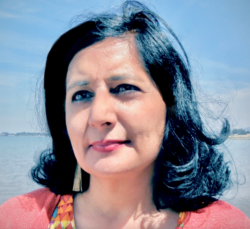
Dr. Sunaina Maira
Professor of Asian American Studies at UC Davis. Her new community-engaged project is focused on Yemeni Americans in Oakland and the impact of the pandemic, the Muslim Bans, and the war in Yemen. Her ethnographic research highlights the experiences of Yemeni corner store owners and their families who have been essential workers on the frontlines of the pandemic. Maira produced digital stories with Yemeni and Arab Americans in the Bay Area that highlight alternative narratives of the Covid “crisis,” the humanitarian disaster in Yemen, the War on Terror, Islamophobia, and community organizing.

